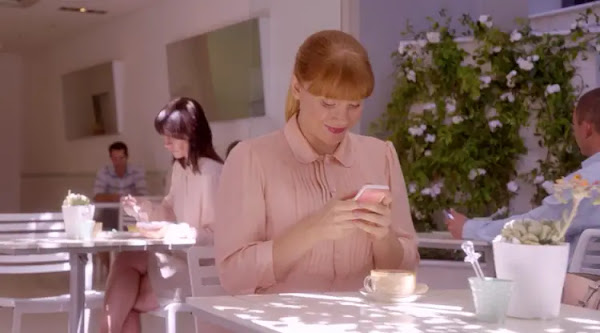In 2016, a single episode of the critically acclaimed anthology series, Black Mirror, called ‘Nosedive’ provided a poignant commentary on the culture of social media and our obsession with approval and validation. Combining the relentless pursuit of perfection with the biting social commentary that the series is renowned for, 'Nosedive' is as relevant today as it was on first broadcast.
Set in a near-future society where every social interaction is rated, ‘Nosedive’ plunges us into a world that is at once familiar and alien. Bryce Dallas Howard brilliantly portrays Lacie, a woman obsessively striving to improve her social rating. Penned by Michael Schur and Rashida Jones, and directed by Joe Wright, this episode combines a dystopian atmosphere with sharp social critique, much like Wright’s earlier work on 'Atonement'.
The storyline is deceptively simple. Lacie, eager to achieve a higher social standing and the privileges that come with it, is given an opportunity to do so by delivering a speech at a highly rated friend's wedding. However, a series of unfortunate events sends her social rating into a nosedive. The episode culminates in Lacie's outburst at the wedding, a striking commentary on the often-inauthentic nature of our online lives.
While ‘Nosedive’ takes its name from the concept of a plummeting social rating, it's noteworthy that this title also subtly references a prior episode 'Fifteen Million Merits'. In both episodes, the protagonists, driven by the allure of societal elevation, are inevitably cast down by the systems they strive to succeed in.
'Nosedive' was the first episode of the third season, marking Black Mirror's transfer from Channel 4 to Netflix. The shift in broadcasting platforms allowed for increased production values and a more international audience, which, like the episode's central premise, reflected the global and pervasive influence of social media.
Interestingly, the writing duo of Michael Schur and Rashida Jones was a deviation from the norm as series creator Charlie Brooker had written or co-written all previous episodes. Schur, the creative force behind 'The Good Place', and Jones, known for her roles in 'Parks and Recreation' and 'The Office', brought their own sensibilities to Black Mirror, introducing a more overt comedic touch.
The viewing figures at the time, according to Netflix, were incredibly high, though the streaming service is famously secretive about its numbers. However, the overwhelming social media response to 'Nosedive' highlighted the episode's cultural impact. It sparked a global conversation about the growing influence of social media and its effect on mental health, nudging Black Mirror into mainstream discourse.
While its influence on television has been profound, ‘Nosedive’ didn't operate in a vacuum. Similar themes of digital dystopia and social commentary were explored in earlier series such as 'The Twilight Zone' and 'The Outer Limits'. However, Black Mirror’s resonance lies in its ability to capture the zeitgeist of a technologically saturated society, and ‘Nosedive’ exemplifies this with unnerving precision.
The legacy of 'Nosedive' can be seen in a myriad of television series and films that followed. 'The Social Dilemma', a documentary-drama hybrid, took up the baton by investigating the damaging effects of social media on society and the individual. Additionally, the concept of a society based on ratings was later echoed in the Orville episode 'Majority Rule'. In fact, this exploration of technology's potential negative impacts has created a unique sub-genre within science fiction, one where Black Mirror holds a commanding position.
Today, ‘Nosedive’ continues to provoke discussion and debate. The episode is an enduring reminder of the potential pitfalls of our infatuation with social media and the ceaseless pursuit of perfection. It invites us to question our own participation in the digital world, forcing us to confront the sometimes-uncomfortable realities of our digital selves.
Seven years on, ‘Nosedive’ remains a chilling prediction of a possible future, a warning of a world where human interaction is reduced to a series of transactions. But perhaps the most terrifying aspect of this Black Mirror episode is not how alien the world of ‘Nosedive’ is, but rather, how familiar it has become.




























No comments:
Post a Comment